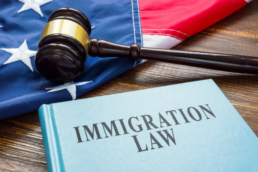The new rule published by USCIS eases the impact of I-140 petition revocations and codifies certain longstanding agency policies on I-140 job portability. These benefits are intended to ease restrictions on job mobility for foreign workers, especially from India and China, during their U.S. employment-based immigration process.
The rule codifies USCISs interpretations of two key statutes, the American Competitiveness in the Twenty-First Century Act (AC21), enacted in 2000, and the American Competitiveness and Workforce Improvement Act (ACWIA), enacted in 1998. These provisions were intended to help enable U.S. businesses to retain and develop highly-skilled foreign workers, and to reduce the burdens of lengthy immigrant visa backlogs on employment-based adjustment applicants.
What happened to an I-140 before the new rule?
Prior to the new rule, an I-140 petition was automatically withdrawn/revoked when a labor certification was invalidated, when the petitioner dies or the business was closed, or when the petitioning employer withdrew the petition (most common). While the withdrawal of the I-140 by the employer generally did not affect the sponsored employees ability to retain their priority date, the revocation of the I-140 did impact the employees ability to obtain H-1B extensions.
What benefits does the new rule offer?
The new final rule amends the regulations so that EB-1, EB-2 and EB-3 immigrant visa petitions that have been approved for 180 days or more would no longer be automatically revoked based only on withdrawal by the sponsoring employer or termination of the petitioners business. As a result, an eligible I-140 petition can be used to retain the priority date with a subsequent I-140 petition, obtain H-1B extensions with subsequent employer, and obtain job portability. (Note that I-140s can still be revoked by USCIS for reasons of fraud, material misrepresentation, invalidation or revocation of a labor certification, or material USCIS error.)
The main benefit of this portion of the rule is to allow foreign workers to be able to retain their priority date with a subsequent I-140 petition. This rule also removes the danger to foreign workers from running out of H-1B renewal options if the I-140 petitioner employer withdraws the I-140 petition (or goes out of business).
How does this work?
Consistent with current policy, the beneficiary of a pending I-140 will be able to port to new employment after his or her adjustment of status application has been pending for 180 days or more, as long as the pending I-140 petition was approvable when filed and remained approvable for 180 days after the filing of the adjustment application.
It is important to understand that the I-140 approval could not be used as a basis to apply for a green card through a different employer (unless the individual also has a pending I-485 and is moving to a new position pursuant to the portability provisions of AC21.) Rather, the new employer still would have to start the green card process anew, including (in most cases) going through the labor certification process. Here, the priority date from the prior I-140 could still be retained.
Berardi Immigration Law welcome DHSs publication of the final rule and we believe that many foreign workers will benefits from the many provisions included in the rule. Please contact our firm if you have questions about how this new rule can benefit you or your employees.
Ready to have Berardi on your side?
Whether you’re a business looking to hire or a professional hoping to relocate, immigration law can be complicated. But you don’t have to do it alone. Put our experience to work for you.


